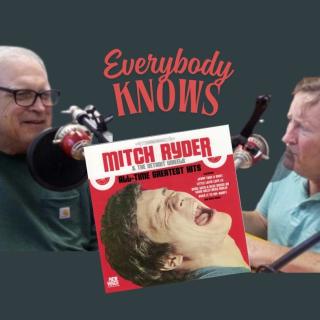February means Valentine's Day and Valentines mean love therefore this column is just brimming with the stuff.
My first shout-out: Johnny Cash.
I've been reading Robert Hilburn's excellent bio on the Man In Black, Johnny Cash – The Life, and I must say I am struck by two things.
One, how hard 1930s Great Depression life was in rural Arkansas. Cash's family was completely the Tom Joad experience but without the Okie western exodus. Cash's farmer father was past desperation, his family virtually destitute when FDR's administration came to the rescue with 20-acre plots for farmers willing to pay them back.
Cash wasn't expected to pick cotton ‘til he was six. But by four he was hauling water out to his family as they did. There they joined together in singing gospel songs. Indeed, by the age of three he already had mastered his first, I Am Bound for the Promised Land.
Which brings me to the second, very fascinating thing about Johnny: he was absolutely devoted to playing and singing gospel music to the point Sam Phillips, the legendary Sun Studio owner who'd discovered Elvis (another Arkansas country boy) had to work pretty hard to convince him to hold off for a bit. The country of his first three Sun singles – Cry, Cry, Cry; Folsom Prison Blues and I Walk the Line Over You – rang with such purity and soulfulness and originality, Johnny wisely listened to Phillips.
Indeed, the first gig as the Tennessee Three was for six gospel songs including I Was There When It Happened and Belshazzar played for a dozen blue-haired church ladies in the basement of the Galloway United Methodist Church. Cash was ecstatic.
As his career progressed, especially the first several years, he nearly always included gospel on records and in concert. Even as he slowly became hopelessly addicted to amphetamines, his own personal hell and cross to bear. He eventually gave up his chemical crutch but he never let go of the Holy Ghost.
Another book, another love.
When I die and stand outside the pearly gates and God asks me for my sins, I will have to tell him in my record store I use to play Booker T. and the MGs for literally hours at a time nearly every single business day.
And I'm sure those dazzling gates will swing right open.
Time Is Tight: My Life, Note By Note – Booker T. Jones came out late last year. Just got it from the library and I'm telling you, the musician who has been described as "soul's ultimate side man," knows how to start a bio: he's middle-aged and successful, laying on the ground of his ranch outside San Francisco having just smoked some Acapulco Gold and realizes the planet beneath him is undergoing an earthquake.
Only Booker T. could describe the sensation as sensual and not violent. The dude had the feel. I'm early in the book but I have skimmed ahead and literally had to stop myself from reading his entire account of recording “Sittin' On The Dock Of The Bay” with Otis Redding. "When you work with a king, you do what the king says," he recounts in regards to a certain Otis tempo suggestion.
If you understand the theme of God, sacredness and music as obvious in this column, I do believe you read me correctly. Indeed, music may be the whole point of the human race.
But Booker and the gods of music? Oh, he does drop names and in only a few short paragraphs tells how one guy named Bob asked him to supply some musical help to a Sam Peckinpah western soundtrack. Thus I can ask you – did you know Booker T. played bass on Dylan's iconic “Knockin' On Heaven's Door?” I sho-nuff didn't. And it reads so nonchalantly.
I will drop more nuggets of Booker's bio as I progress from his Good Book of Rhythm 'n' Groove. I'm just surprised and pleased how well he writes. The man, a genius on the Hammond B-3, comes off as one very highly intelligent guy. I'm takin' this tome a coupla pages at a time so I can completely digest his art.
A third book I've just had dropped in my lap is by local author David Meyers, who has a dozen-and-a-half Ohio-related mostly historical titles to his credit, has just released his first novel, a music fantasy of sorts.
I got to know home boy back in 1987 when he turned his passionate hobby of hunting down Ohio-made records by Ohio musicians and gathering their Ohio information. Back then he already had some 800 pages of print-out. Truly a labor of love.
Hello, I Must Be Going is his fictional tale of Columbus band Zack Black & the Blues Attack set in 1970 who've hit fame and fortune with their debut album. Then things fall apart and it's over before it's barely begun.
Forty years later as Zack is playing a solo gig, a "mysterious woman appears with an unusual request: Would he help her carryout her husband's dying wish?" Namely, to put the band back together to "prove to the world they had what it takes."
Of course he wants to. First the band must "confront the secrets and lies that led to their demise." Cue the evil laughter now – I'm hooked.
Meyers can tell a historical tale – so we'll see if he can tell a fictional one.
In the meantime, it's Black History month, so let us remember the late great Harlem poet, Langston Hughes, whose Weary Blues album of his poems set to Charles Mingus jazz is one of the greatest CDs I've ever heard. From his Democracy:
Freedom
Is a strong seed
Planted
In a great need.
I live here, too.
I want freedom
Just as you.
Now there's a Valentine to the great American hope.



